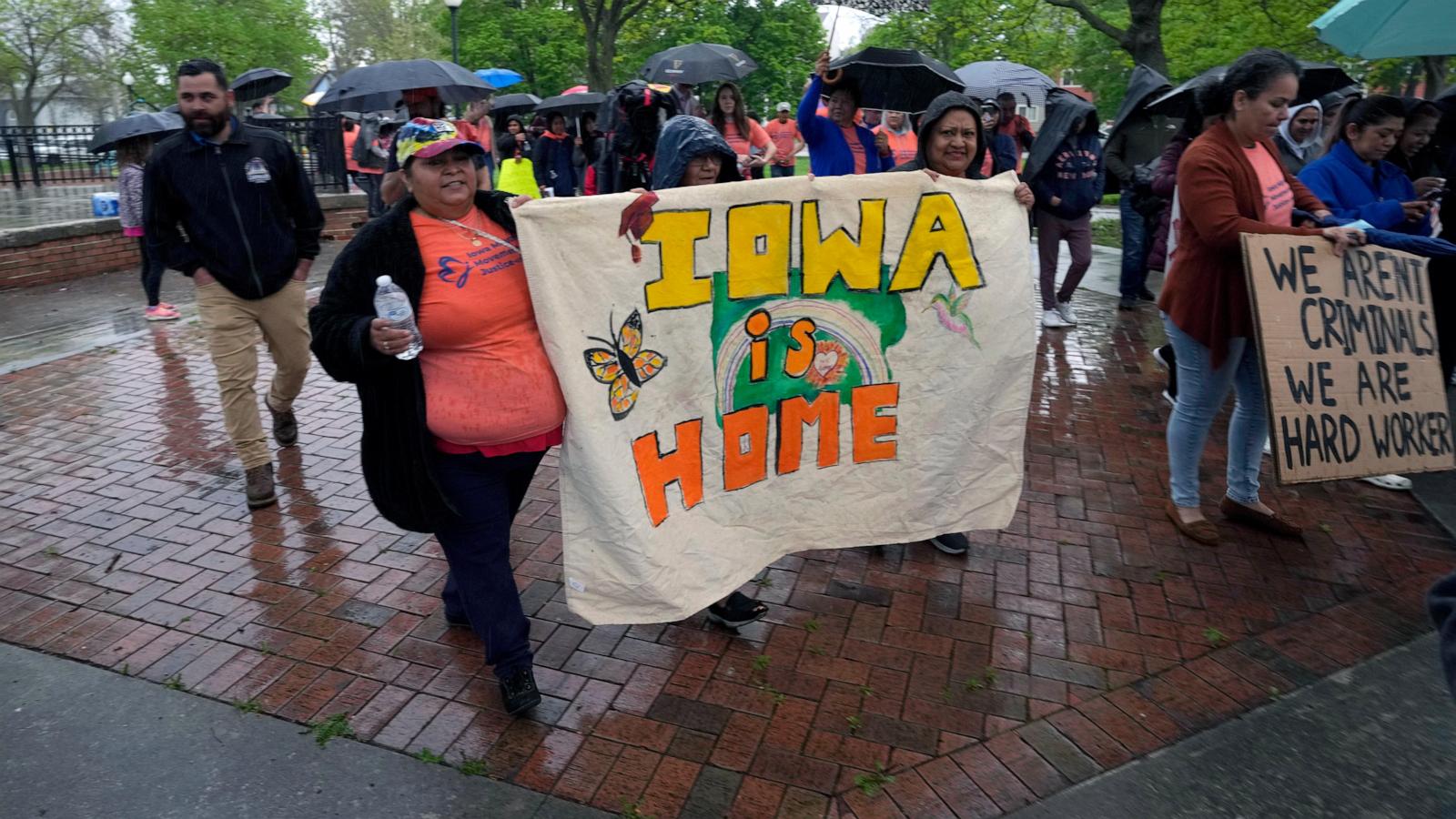Iowa's Controversial Immigration Law Faces Legal Setback: What's Next?
Get ready for a rollercoaster ride through the legal battle over Iowa's new immigration law! This isn't your typical courtroom drama; it involves clashing legal interpretations, political fireworks, and the very definition of state versus federal power. The latest twist? A federal appeals court temporarily blocked the law, causing a stir among Republicans and immigration activists alike. Let's dive into the details and unravel this complex legal knot!
The Heart of the Matter: Iowa's Immigration Law
At the core of this controversy lies a controversial Iowa law that criminalizes the presence of undocumented immigrants within the state. This legislation empowers state and local authorities to arrest and prosecute individuals with outstanding deportation orders or those who have been previously deported or denied entry into the U.S. This isn't just about paperwork; we're talking about potential imprisonment and family separation – an issue that’s deeply dividing the state.
A Clash of Powers: Federal vs. State
The law's supporters argue it's crucial for public safety and border security. They highlight the perceived failure of the federal government to enforce immigration laws effectively, emphasizing the need for state intervention to protect communities. However, opponents argue that the law unconstitutionally usurps the federal government's exclusive authority over immigration, leading to potential conflicts and complications. This is a classic tug-of-war between federal and state powers – and it's happening right in Iowa!
Legal Challenges and Setbacks
The law hasn't faced a smooth path since it became official. The Department of Justice, alongside immigrant rights groups, launched legal action, obtaining a temporary restraining order (TRO) to block the enforcement of the law. Iowa immediately appealed this TRO, leading us to this latest court decision. The federal court of appeals upheld the TRO, highlighting a significant challenge for the state. The court highlighted the potential negative impacts of the law on US foreign policy and complicating already complex federal procedures.
The Trump Factor: Uncertainty for Iowa's Legal Battle
The introduction of another layer of complexity arises as President Trump reenters the national political landscape. His previously stated strong position against illegal immigration significantly changes the political implications of this court battle. With Trump's declared commitment to tighter immigration enforcement, the legal challenges facing Iowa could undergo a dramatic shift – that’s certainly got people talking!
A Shifting Legal Landscape: What Now?
A critical development occurred as the appeals court suggested that if the Department of Justice withdraws its case, then a parallel lawsuit by the Iowa Migrant Movement for Justice might become moot, changing the legal playing field. This sudden uncertainty casts doubt on the future course of legal proceedings. The Iowa Migrant Movement for Justice has pledged to explore every legal path to challenge the constitutionality of the law and will certainly continue the fight for justice.
The Political Implications: A Deep Divide in Iowa
This immigration law has triggered a sharp political divide, with Republican leaders largely supporting the law and Democratic counterparts strongly opposing it. Republican Governors and legislatures around the country have indicated support for the initiative, while Democrats emphasize the possible human rights violations and constitutional challenges.
State vs. Federal Powers: The Ongoing Debate
The central theme fueling this political polarization is the enduring dispute regarding the division of power between states and the federal government over matters of immigration policy. While Iowa's governor and attorney general strongly defend the law, federal authorities and immigration advocacy groups equally oppose the law, asserting it is a violation of fundamental constitutional principles.
Take Away Points
- Iowa's immigration law is currently temporarily blocked, pending further legal proceedings.
- The Trump administration’s stance on immigration policy is expected to have a significant influence on future judicial decisions.
- The ongoing battle highlights a broader nationwide debate concerning the division of immigration enforcement authority between federal and state governments.
- The debate’s outcome will have significant implications for Iowa's immigration policy and potentially set a precedent for other states.




